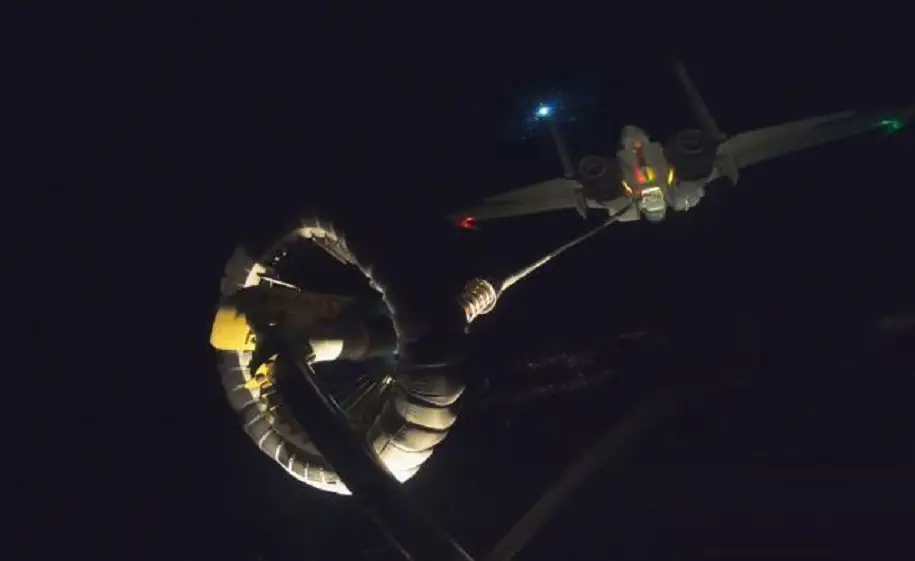Recently, two Shenyang J-15 carrier-based fighter jets attached to a ship-borne aviation unit under the People’s Liberation Army Naval Air Force have successfully completed the nighttime buddy refueling training in air space, marking a new breakthrough in their all-weather long-range combat capability. The nighttime buddy refueling training was conducted between two carrier-based J-15 fighters, which are only about 10 meters separated during the aerial refueling process. This placed extremely high requirements on the pilots’ operational skills, physiological and psychological conditions, and cooperation capabilities. Aerial refueling is universally recognized as one of the most challenging flight events, as it is extremely easy for the aircraft to scratch or even collude in the dim light against a dark background.
The Shenyang J-15 (NATO reporting name: Flanker-X2, also known as Flying Shark), is a 4th generation, twin-jet, all-weather, carrier-based fighter aircraft in development by the Shenyang Aircraft Corporation and the 601 Institute for the Chinese People’s Liberation Army Navy’s aircraft carriers. It is developed from J-11B as well as from studying of a prototype of Su-33. An unfinished Su-33 prototype, the T-10K-3, was acquired from Ukraine in 2001 and is said to have been studied extensively, reverse engineered, with development on the J-15 beginning immediately afterward. While the J-15 appears to be structurally based on the prototype of Su-33, the indigenous fighter features Chinese technologies as well as avionics from the J-11B program. Thus, the J-15 is viewed as an interim carrier-based fighter until a 5th generation successor enters service.
The Shenyang J-15 J-15 could operate from the carrier equipped with two YJ-83K anti-ship missiles, two short-range PL-8 air-to-air missiles, and four 500 kg (1,100 lb) bombs, but a weapons load exceeding 12 tons would not get it off the ski jump, prohibiting it from carrying heavier munitions such as PL-12 medium-range air-to-air missiles, making it an unlikely match if hostile fighters are encountered when flying strike missions; furthermore, it can only carry two tons of weapons while fully fueled, limiting it to no more than two YJ-83Ks and two PL-8s. The J-15 could match the F/A-18 in bomb load, combat radius and mobility. However, in a similar statement, he said more work was required in its electronics and combat systems.
















